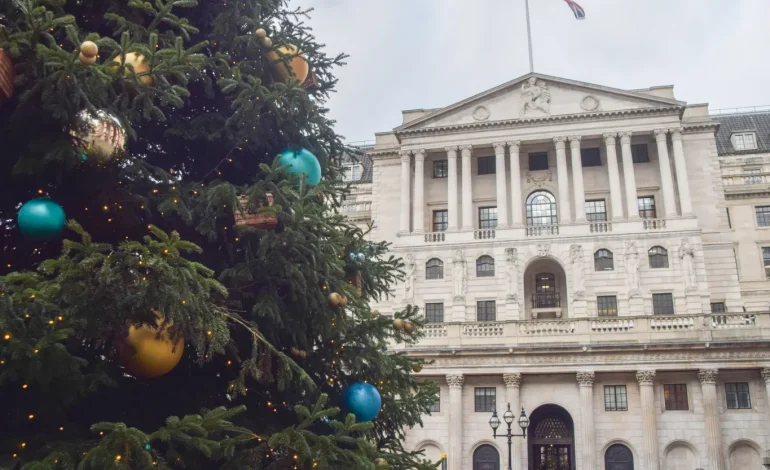The Bank of England (BOE) concluded its final meeting of 2024 with a decision to keep interest rates unchanged, despite rising inflation that reached an eight-month high in November.
The central bank’s nine-member Monetary Policy Committee (MPC) voted 6-3 in favor of holding rates at 4.75%, which was a surprise as economists had anticipated only one vote in favor of a rate cut. The divergence in votes has raised concerns about the central bank’s future stance on monetary policy.
The BOE’s decision comes as inflation in the UK remains well above its target rate, with the latest figures showing a rise in headline inflation to 2.6%. Services inflation also continues to be a concern, and policymakers are cautious about reducing rates, fearing that lower borrowing costs could further fuel price pressures. Earlier this year, the BOE had already reduced the key interest rate from 5.25% to 4.75% through two quarter-percentage-point cuts.
The decision to hold rates is seen as a response to ongoing inflationary pressures and the weak growth of the British economy. In its updated economic forecast, the BOE downgraded its prediction for the fourth quarter of 2024, now expecting no growth compared to the 0.3% expansion forecasted in its November report. This reflects a slowdown in the economy, which has shown signs of contraction, including a surprise 0.1% decline in October.
While the BOE’s cautious approach to interest rate cuts is in line with its concern over inflation, it has disappointed some sectors of the UK economy that had hoped for cheaper credit to stimulate growth. However, economists note that persistent price pressures and inflationary concerns may limit the central bank’s ability to respond to stagnation in output and falling employment with aggressive rate cuts.
The market’s expectations for future rate cuts have also adjusted, with money markets now pricing in around 50 basis points of cuts for next year, a reduction from earlier predictions of 70 basis points. The divided vote and dovish tone of the minutes suggest that a rate cut in February remains a possibility, although some experts caution that the timing and pace of future cuts may become increasingly complex.
The BOE’s decision comes amid a global trend where central banks, including the US Federal Reserve, are tempering expectations of aggressive rate reductions as inflation rates remain above targets. Critics of the current UK government argue that recent fiscal policies, including higher business taxes, have contributed to inflationary pressures while dampening growth.









